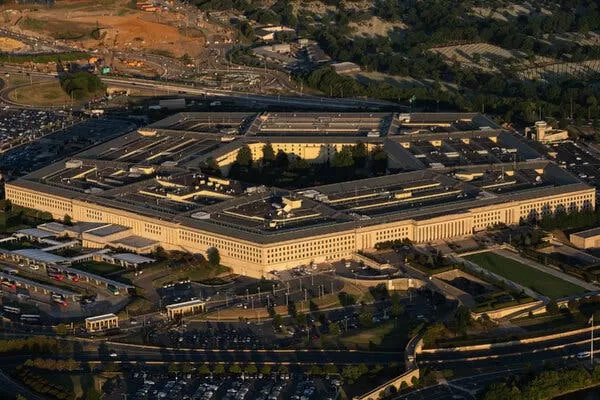Trump's Bold Proposal: The Pentagon Could Revert to 'Department of War'
Share- Nishadil
- September 05, 2025
- 0 Comments
- 3 minutes read
- 47 Views

Former President Trump Eyes Controversial 'Department of War' Rebrand for the Pentagon
Former President Donald Trump has indicated he would seek to rename the Department of Defense as the 'Department of War,' a move that would harken back to a previous era and potentially signal a more aggressive military posture.
Former President Donald Trump has once again stirred the political pot, floating a provocative proposal that could fundamentally alter the perception of America's military apparatus. In a move that harks back to an earlier era, Trump has indicated his intention to rename the U.S. Department of Defense as the 'Department of War,' should he return to the White House.
This potential rebrand isn't just a linguistic shift; it carries significant historical weight and symbolic implications.
The institution we now know as the Pentagon was originally established as the Department of War in 1789. For over a century and a half, this name accurately reflected its primary mission. However, following the devastations of World War II, a profound shift in global strategy and national ethos led to a significant overhaul.
The National Security Act of 1947 saw the Department of War consolidated with the Department of the Navy into the National Military Establishment, which was then swiftly renamed the Department of Defense in 1949.
The transition to 'Department of Defense' was a deliberate choice, intended to project a more defensive and peace-seeking posture on the international stage.
It aimed to emphasize the nation's commitment to protecting its interests and allies, rather than overtly signaling an offensive stance. This renaming was part of a broader effort to reframe America's military role in a post-war world, signaling a dedication to deterring conflict and maintaining global stability.
Trump's proposed return to the 'Department of War' name is likely rooted in a desire to project a different image – one perhaps of unapologetic strength, clarity of purpose, and a more direct articulation of the military's combative functions.
Proponents of such a change might argue that 'defense' is a euphemism that obscures the hard realities of military operations and the necessary engagement in conflict when national interests are at stake. They might suggest that a 'Department of War' more accurately reflects the readiness for direct action and decisive intervention.
However, the implications of such a rebrand extend far beyond mere semantics.
Critics would undoubtedly raise concerns about how such a name change would be perceived both domestically and internationally. Would it be seen as an aggressive signal to adversaries, potentially escalating tensions? Could it impact the morale and public perception of service members, shifting the narrative from protecting peace to actively waging war? There are also considerable practical hurdles, including the immense bureaucratic undertaking of rebranding an entire government department, from signage and stationery to legal documents and official titles.
Ultimately, the debate over renaming the Pentagon's primary department highlights a deeper philosophical discussion about America's role in the world and how its military power should be framed.
Is the nation's armed forces primarily a defensive shield, or an instrument of assertive power projection? Trump's proposal challenges the carefully constructed narrative of the post-war era, forcing a re-evaluation of the language we use to define our nation's most powerful institution and, by extension, its global identity.
.Disclaimer: This article was generated in part using artificial intelligence and may contain errors or omissions. The content is provided for informational purposes only and does not constitute professional advice. We makes no representations or warranties regarding its accuracy, completeness, or reliability. Readers are advised to verify the information independently before relying on







